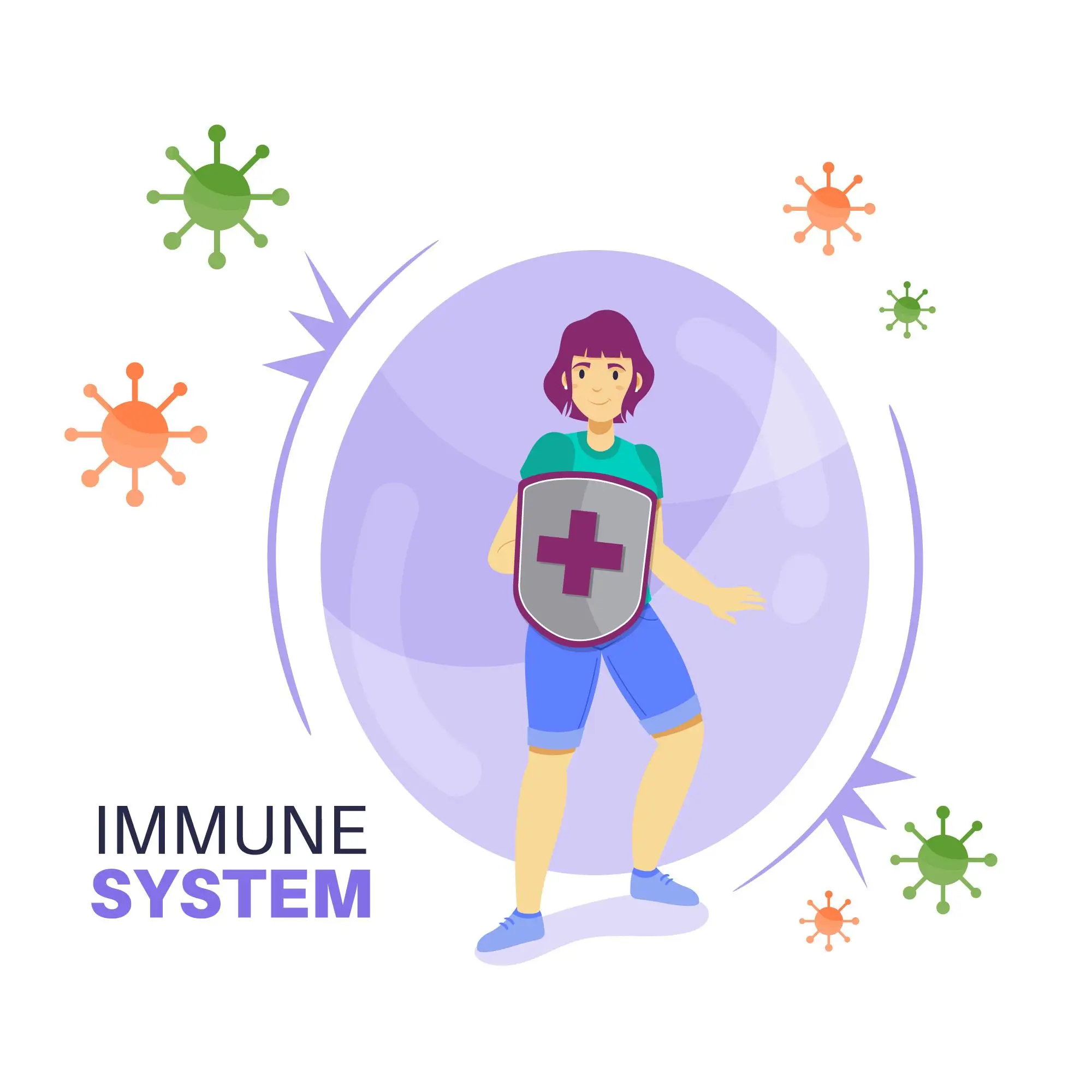We’re selling organic products
Discover the Power of Nature with Our Organic Products
+91 83064 08402

Essential Guide to Boosting Your Immunity
Immunity refers to the body’s ability to defend against harmful pathogens and diseases. A strong immune system is essential for maintaining overall health and well-being. This page provides information on understanding immunity, factors that influence it, and practical tips to support immune function.
Understanding Immunity
Types of Immunity
- Innate Immunity: Natural defense mechanisms present from birth, including skin barriers, white blood cells, and inflammation responses.
- Adaptive Immunity: Specific immune response that develops throughout life, involving antibodies and immune memory.
Factors Influencing Immune Health
- Nutrition: Adequate intake of vitamins (like C and D), minerals (like zinc), and antioxidants supports immune function.
- Lifestyle: Regular exercise, sufficient sleep, and stress management contribute to a healthy immune system.
- Hygiene: Good hygiene practices, such as handwashing, reduce the risk of infections.
- Vaccination: Immunization helps stimulate adaptive immunity and prevent specific diseases.
Boosting Immunity Naturally
- Healthy Diet: Include a variety of fruits, vegetables, whole grains, lean proteins, and probiotics.
- Physical Activity: Regular exercise improves circulation and immune cell function.
- Stress Reduction: Techniques like meditation, yoga, or deep breathing can lower stress hormones and strengthen immunity.
- Adequate Sleep: Aim for 7-9 hours of quality sleep each night to support immune health.
Common Immune System Disorders
Autoimmune Diseases
- Description: Conditions where the immune system mistakenly attacks healthy cells and tissues.
- Examples: Rheumatoid arthritis, lupus, multiple sclerosis.
- Treatment: Medications to suppress immune responses and manage symptoms.
Immune Deficiency Disorders
- Description: Weakened immune system due to genetic factors or medical treatments.
- Examples: HIV/AIDS, primary immunodeficiency disorders.
- Management: Antiretroviral therapy, immune-modulating medications, and preventive measures against infections.
Maintaining Immune Health
- Regular Check-Ups: Monitor immune function through routine health screenings.
- Hydration: Drink plenty of water to support immune cell function and overall health.
- Avoidance of Harmful Substances: Limit alcohol intake, avoid smoking, and minimize exposure to pollutants.
- Healthy Habits: Practice good hygiene, such as handwashing and covering coughs and sneezes, to prevent the spread of infections.

Why Choose SGP Group?
Experience exceptional service and unparalleled support with SGP Group.
-
Refreshing to get such a personal touch in service
-
Committed to excellence in every interaction
-
Innovative solutions tailored to your needs
Frequently Asked Question!
To naturally boost your immune system:
- Eat a Balanced Diet: Include fruits, vegetables, whole grains, lean proteins, and foods rich in vitamins (like C and D), minerals (like zinc), and antioxidants.
- Exercise Regularly: Engage in moderate physical activity most days of the week to support immune function.
- Manage Stress: Practice relaxation techniques such as meditation, yoga, or deep breathing to reduce stress hormones that can weaken immune responses.
Yes, several foods can support immune health:
- Citrus Fruits: Rich in vitamin C, which helps boost immune function.
- Yogurt: Contains probiotics that promote a healthy gut microbiome, crucial for immune regulation.
- Garlic: Known for its immune-boosting properties due to its sulfur-containing compounds.
Spinach and Kale: Packed with vitamins, minerals, and antioxidants that support overall health.
Adequate sleep is crucial for immune function:
- Repair and Recovery: During sleep, the body repairs tissues and strengthens immune responses.
- Regulates Immune System: Sleep helps regulate immune system activity and production of immune cells.
- Recommendation: Aim for 7-9 hours of quality sleep per night to support overall health and immune function.







